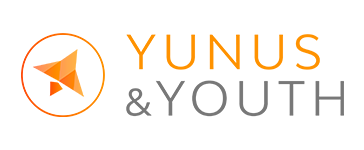Social Entrepreneurship in COVID-19 times: an update from Y&Y fellows who are fighting the pandemic
Between April 20th and 21st this year, Yunus & Youth joined other international youth-supporting organizations, including Ashoka, Bosch Alumni Network, Bridge for Billions, ChangeNOW, ChangemakerXchange, Ginkgo Foundation, Global Changemakers, Global Shapers, and Obama Foundation to launch the COVID-19 Virtual Summit & Coalition of Youth Changemakers. And it was a success!
During the Summit, four main objectives were reached:
- Building a sense of belonging among changemakers who were working to address the effects of COVID-19;
- Increasing personal sustainability as opposed to stress among changemakers and their teams;
- Teaching changemakers concrete, actionable skills that they can implement to tackle the crisis and
- Encouraging the changemakers to take collective action through cross-border collaborations.
To learn more about the main learnings of the event, visit the Changemaker XChange Blog to check out the main takeaways from it, including participants’ feedback, best practices, useful tools for social entrepreneurs at this time and many other interesting topics!

Illustration by: Housatonic
Y&Y Fellows used the COVID-19 Virtual Summit as an opportunity to showcase their ideas to mitigate the effects of COVID-19, to connect with fellow changemakers and to gather tools to implement their ideas.
Now, their work is even stronger. Y&Y Fellows have developed new ideas to fight COVID-19, adapted their social businesses and used this as an opportunity to innovate!
Check out their amazing work:
Routouang Mohamed Ndonga Christian, from Chad
Christian leads the Youth Network for Development and Leadership in Chad (RDJLT), which seeks to inform, inspire and encourage Chadian youth to engage and act in favor of the Chadian population in order to inform them about the coronavirus.
Their main objective is to educate and inform the population about COVID-19, to teach them the different techniques and precautions to adopt to prevent as well as what to do in the event of infection or in the presence of an infected person.
So far, Chrstian and his team have carried out several actions, impacting more than 10,000 people in their community. They were supported by UNFPA and local partners.

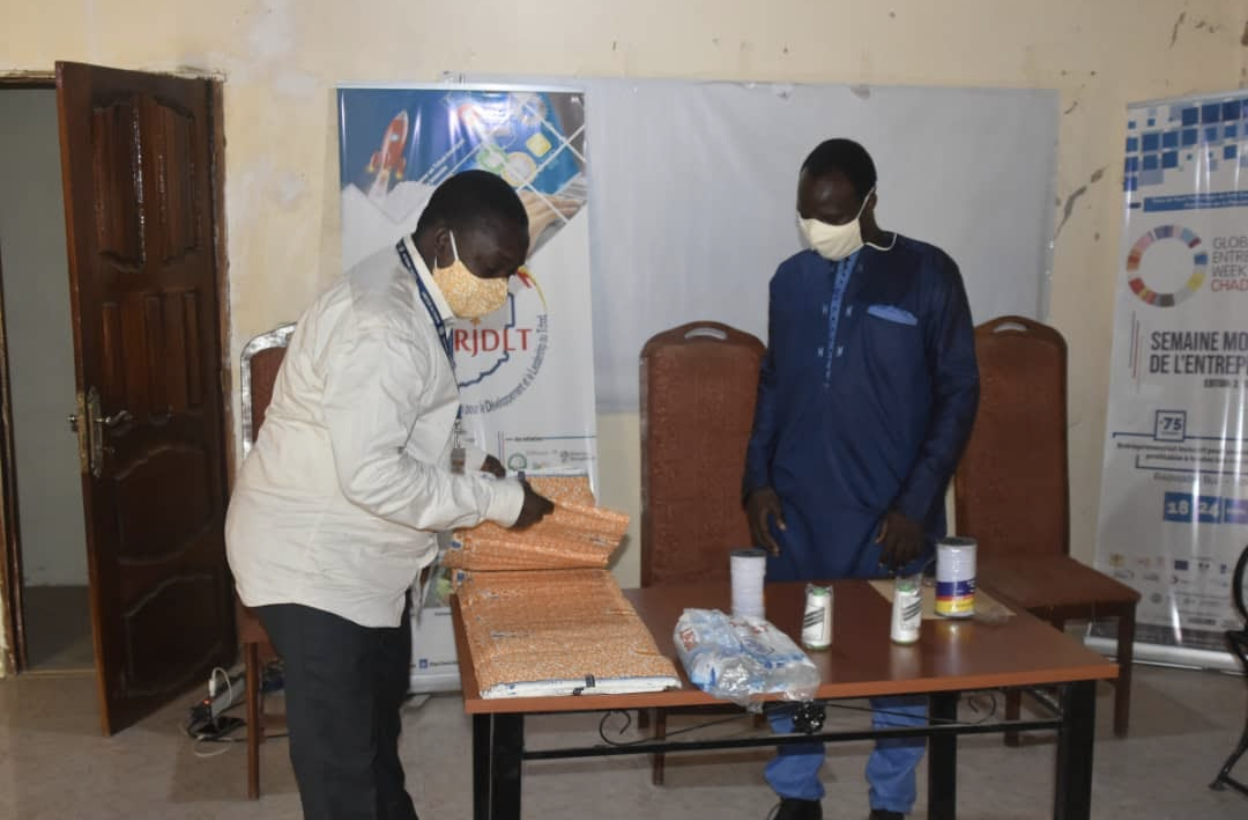
Recently, they have launched the HUBJEUNE project, with a booth where people can find reliable information, receive masks and learn about sexual and reproductive health.
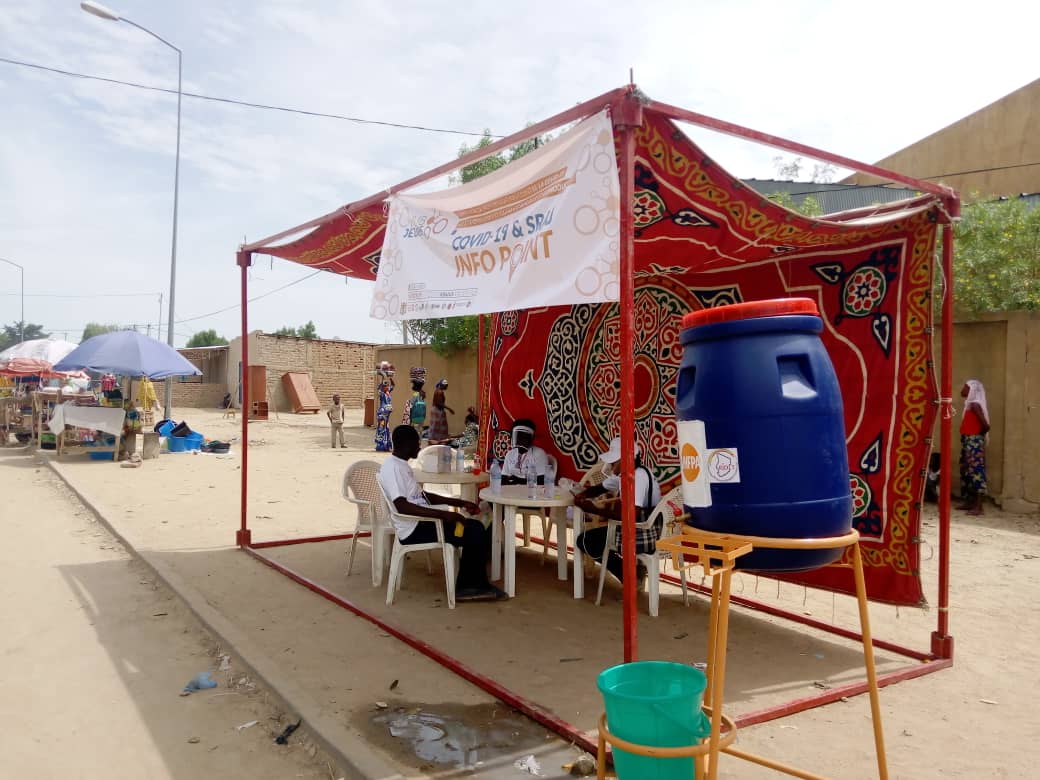
Arthur Igor Lima, from Brazil
Arthur leads AfroSaúde, a social business that promotes multidisciplinary action in health to serve the peripheral population of Salvador, in northeast Brazil.
To mitigate the effects of COVID-19 among vulnerable groups in Salvador, Arthur and his team created a telephone and internet support network so that the population could have free access to information and guidance, “Telecorona”.
Since May 14th, they have received more than 240 calls. Arthur expresses a concern that social isolation in Brazil it’s constantly changing and part of the population is getting impatient. Even though they massively advertised the initiative through sound cars and social networks, the number of calls fell. But they are not discouraged. Arthur explains that they understand that the social context of people living on the outskirts goes beyond the pandemic, so he and his team are thinking about strategies to ensure connections.
Last week, their free telemedicine service with psychologists started to work, so the number of calls is expected to increase.
COVID-19 has shown Arthur and his team that AfroSaude can be so much more than a connection platform, even though it is still a challenge to find financial resources to invest in their technology.
Along with their work to provide free access to information through free calls, AfroSaúde has partnered with a fashion company, which is giving masks for the communities in Salvador and they also made fridge magnets to distribute with the masks.
Even though they are facing financial challenges, they can see the impact of what they are doing talking about racism in health and making projects such as the one focused on COVID-19.
For Arthur, Y&Y is helping him and AfroSaúde to understand more of their power and opening doors for a social business.
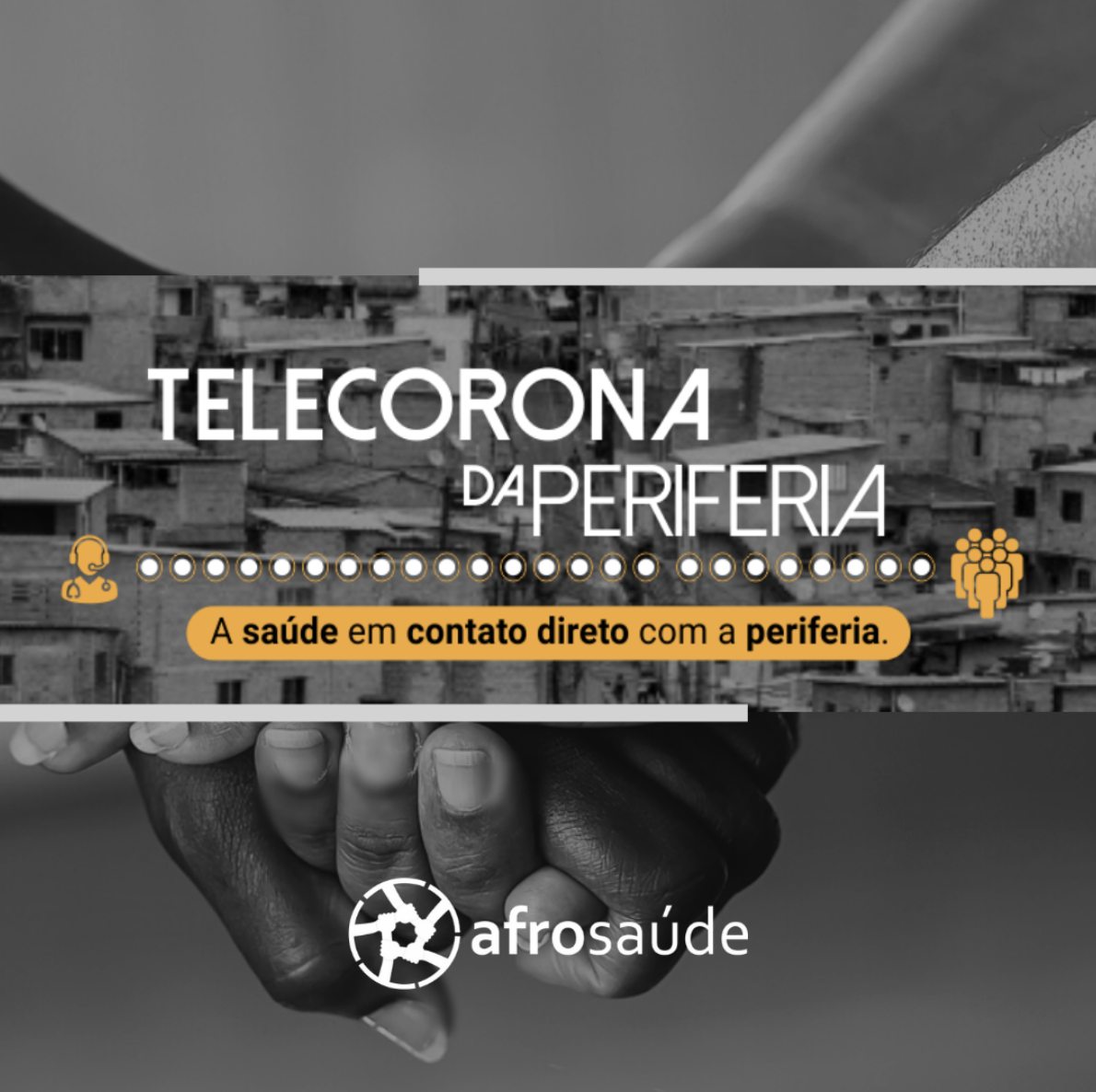
Amanda Obidike, from Nigeria
Amanda is the founder of STEMi Makers Africa, which is addressing the COVID-19 Pandemic by providing schools with access to their e-learning platform where teachers and mentors assign tasks to students.
To continue providing access to education to local schools, Amanda and her team have developed a Learning management system (LMS) for continuous learning, where schools in under-represented communities can assign tasks to students.
Amanda shared that “the feedback has been tremendous because it harmonized features for parents to monitor their wards’ performance and interact with their teachers for better growth of the students”.
So far, they have successfully onboarded 67 schools from 18 local communities.
Going forward, they want to build a Cloud repository where over 400 courses (consisting of university courses, skills-based courses and secondary schools) will be launched on the LMS platform!
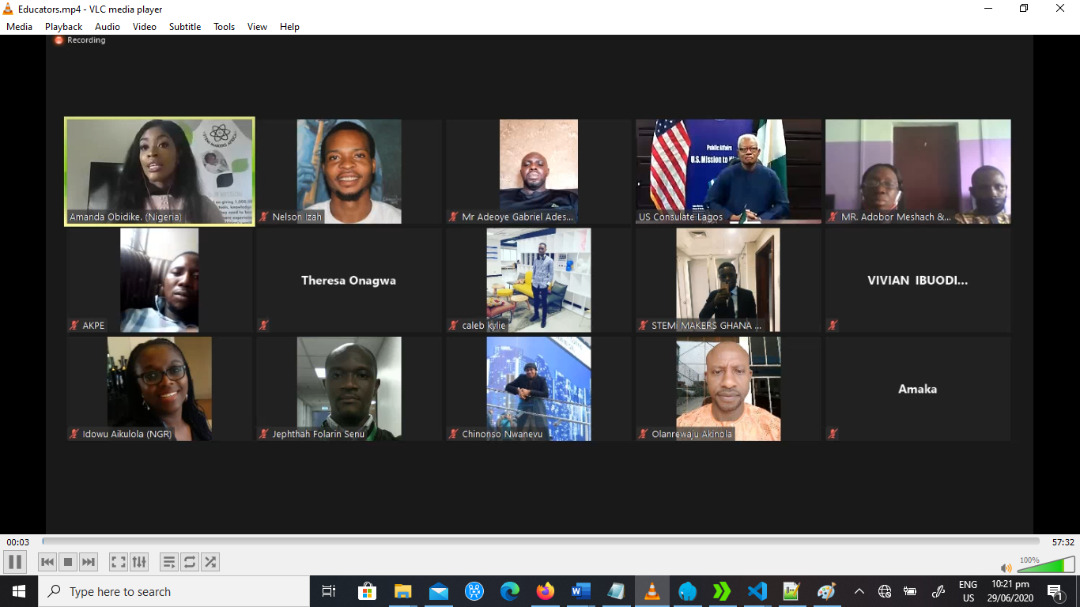
Omar Assaf, from Lebanon
In Lebanon, Omar’s social business, SHiFT, is intervening through its digital resources, the Media lab and the social media accounts by posting awareness videos, precautions, instructions and by sharing valuable virtual opportunities. It is also providing virtual coaching sessions for the startups and Nano & Micro businesses on how to respond to the crisis. In addition, it is working now on an emergency intervention plan which will start with the distribution of daily meals for the vulnerable people in the community.
After the COVID-19 Virtual Summit, Omar has received another opportunity by Ashoka and SAP to a small serial workshop called “Resilience Program for Social Innovators in MENA”!
Dra. Carolina Zuheill Rosales, from Mexico
Carolina leads PROMESA, a social business that uses artificial intelligence to analyze the state of health of a person and to show if they are carriers of the disease. This helps to size the problem and take preventive measures.
PROMESA is on the front-line of defense of indigenous communities in Mexico, which do not have the infrastructure, so the measures established by the WHO cannot be applied. Many live in houses of 3×3 meters with up to 7 people. Others do not have houses. There is no access to clean water or personal hygiene items; many also do not have access to food.
AI has helped stage patients at risk. Algorithms were created with all the clinical cases published in different medical journals internationally, and Carolina and her team have been analyzing age, sex, risk factors, and chest x-rays that have allowed them to get as close as possible to making a clinical-artificial diagnosis. In other words, this system gives them a percentage risk that a patient will become infected. Each case detected as suspicion is isolated.
However, they have come across a challenge. They have found similarities with patients who have pulmonary emphysema from cooking with firewood and who have respiratory symptoms.
This has led us to put together a family prevention kit that has been delivered to each family in each community we serve. This kit includes a thermometer, 10 masks, Alcoholic gel, Ibuprofen, Anti-flu medications and Oximeter.
Carolina explains how the prevention kits should be used: “In the event that someone presents a symptom, they should start with the protocol that we established and that is known by families. It consists of notifying us through a text message sent by cell phone with satellite service to follow up on the patient remotely. If the patient has all the symptoms and the data issued by the AI system gives a risk factor percentage above 85%, the referral is made to the COVID hospital according to that issued by the National Institute of Indigenous Peoples”.
PROMESA’s management is personal, based on the clinical experience the team has. Although the WHO established that they should be isolated only with intake of paracetamol/acetaminophen, they have decided to go further as doctors. To date, their management has been successful and will soon be published in a scientific journal.
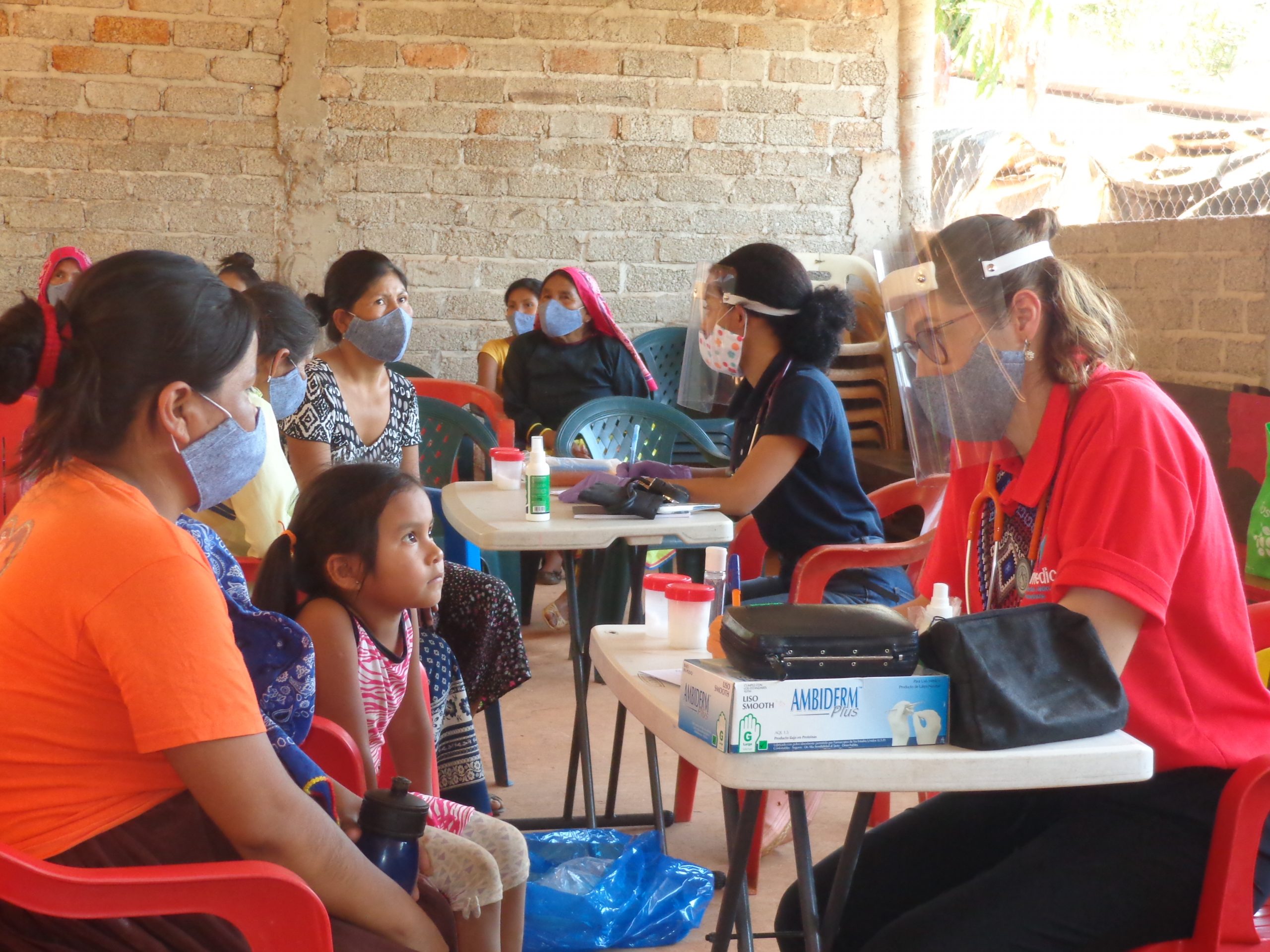
Sara Rajabli, from Azerbaijan
Sara is the founder of Social Business Youth Center, an online mentorship program on social entrepreneurship.
To advance their impact during the crisis, Sara and her team have had several initiatives and new partnerships.
Among them, they have partnered with a US-based organization to conduct storytelling workshops on social entrepreneurship. During the pandemic, they have organized 3 days workshops for 10 mentees working on their social business ideas, by involving two experts on media management. In addition, they have hosted 10 free webinars for more than 200 people with top local experts on topics of entrepreneurship. Other free webinars were organized for more than 1,000 young leaders.
For their mentorship program, they have welcomed new mentors from impactful youth-supporting organizations, such as One Young World and Forbes 30 Under 30.
Lastly, they have also organized “coffee sessions” with Y&Y alumna Sameera Chukkapalli, who provided meaningful discussions on social entrepreneurship.
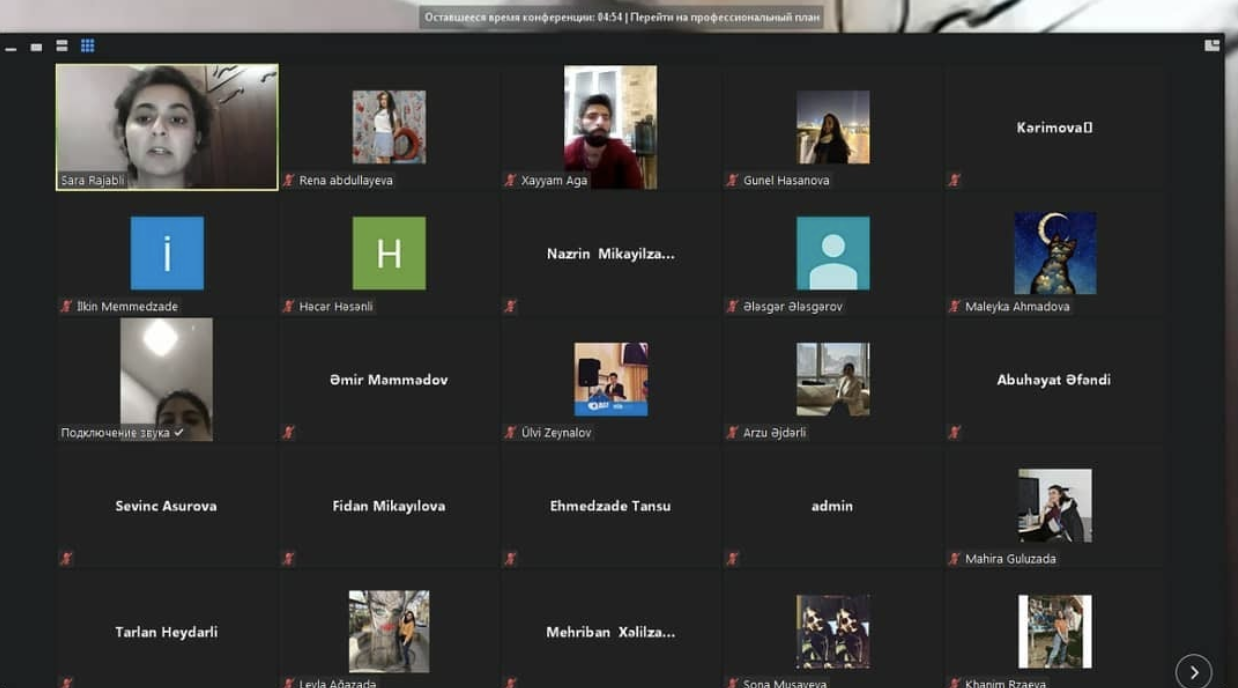
Paulo Mpokwa, from Tanzania
Paulo is the founder of Fundi App, which focuses on helping more than 5 million people in Dar es Salaam to stay-at-home by remotely connecting them to handymen/technicians using their mobile application.
During COVID-19, Paul and his team’s strategy is to learn more and to adapt in order to increase their impact even during the crisis.
The Fundi App has been selected as a Top 100 Solutions Finalist for the AfricaVsVirus Challenge, hosted by the African Development Bank(AfdB). The competition drew more than 25,000 participants from all 54 African countries and beyond! .
Paulo is thankful for the opportunity given during the COVID-19 Virtual Summit to receive feedback from others, which helped him and his team to better craft their idea to use their social business as a tool to mitigate the effects of COVID-19.
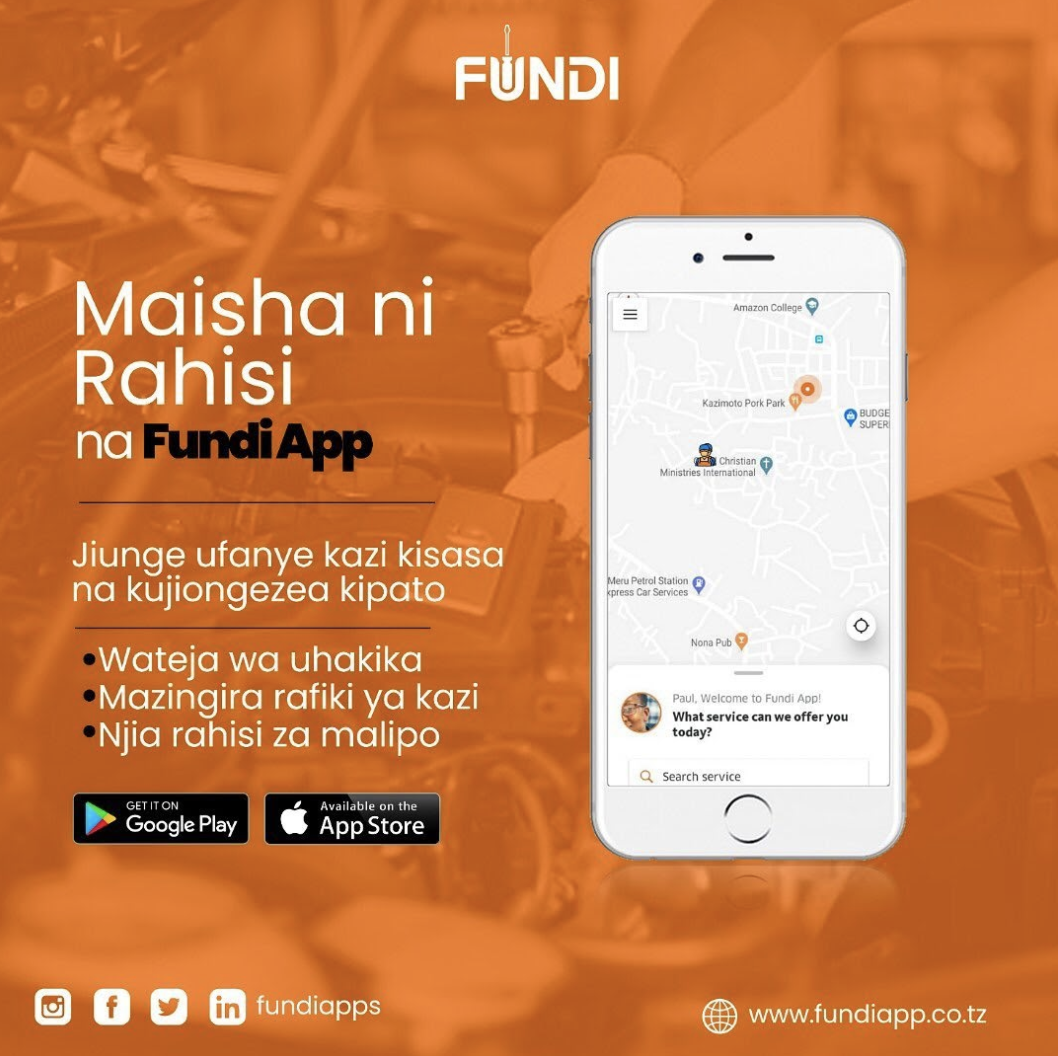
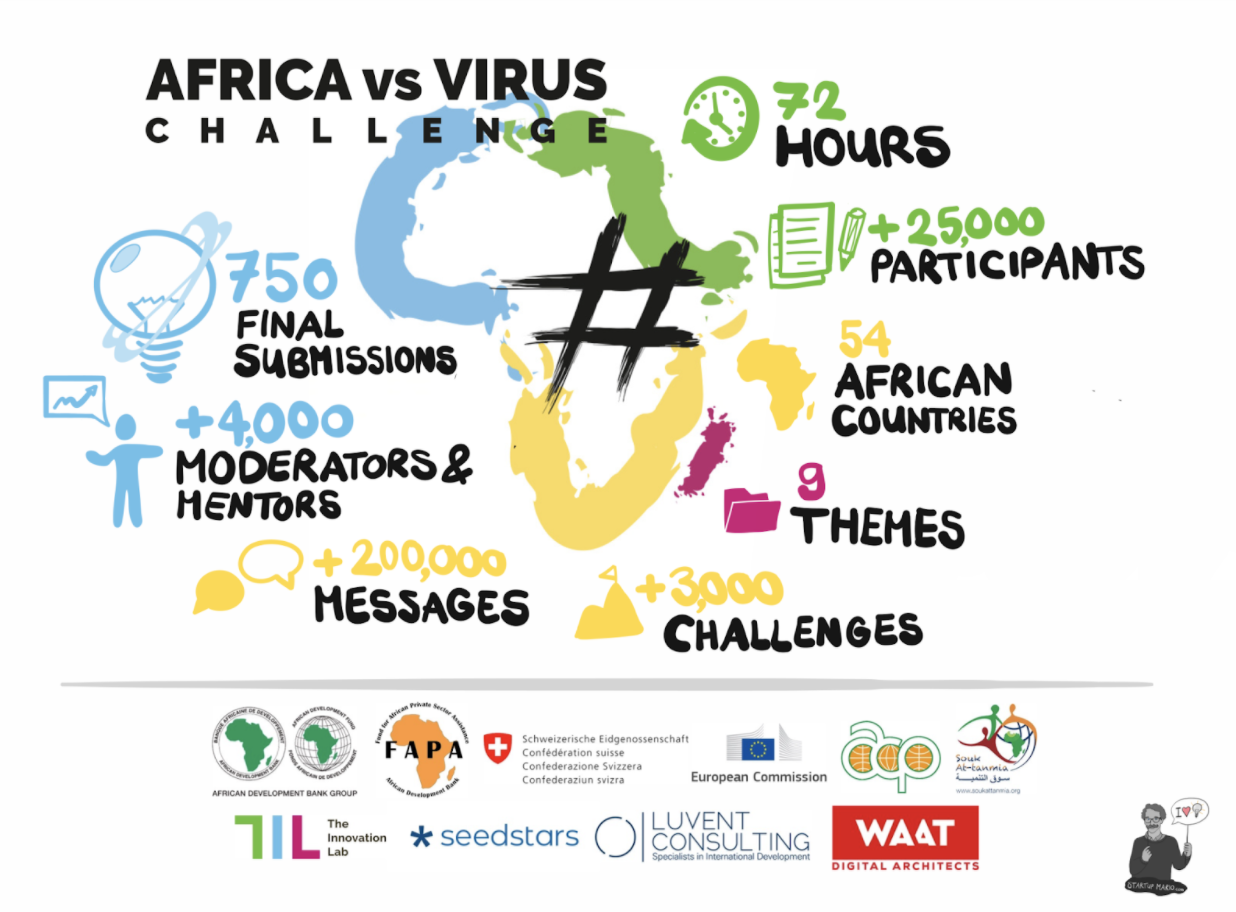
Maria Del Mar, from Colombia
Maria is the founder of Fundacion Soy Oportunidad, which empowers young mothers who live in vulnerability and poverty, through entrepreneurship and life projection programs that allow them to generate new economic and social opportunities.
At this time, they have led campaigns to raise money and provide food to the mothers in their program.
Maria and her team have created a crowdfunding campaign, Juntos Desde La Distancia (“together from distance”), through which they have impacted more than 800 people in Bogotá so far!
To increase their impact even more, they have created alliances with local enterprises, through using special dates such as Mother’s Day and Father’s Day, to get more resources from donations.
In addition, they have expanded their donations to include diapers, clothes and other items that are helpful for the families as well.
Lastly, they have also started a program of virtual attention to mothers. They have a group of psychologists who are having phone calls with them, listening to their main needs and helping them to solve internal problems at home.
When speaking about her initiative, Maria admits that it has not been easy, as they cases have been confirmed everyday. Still, she and her team keep their hope high. “We are still working to change the way we were training our moms during our main program, but I have learned something that I try to repeat to myself everyday.. One that at a time, María!”
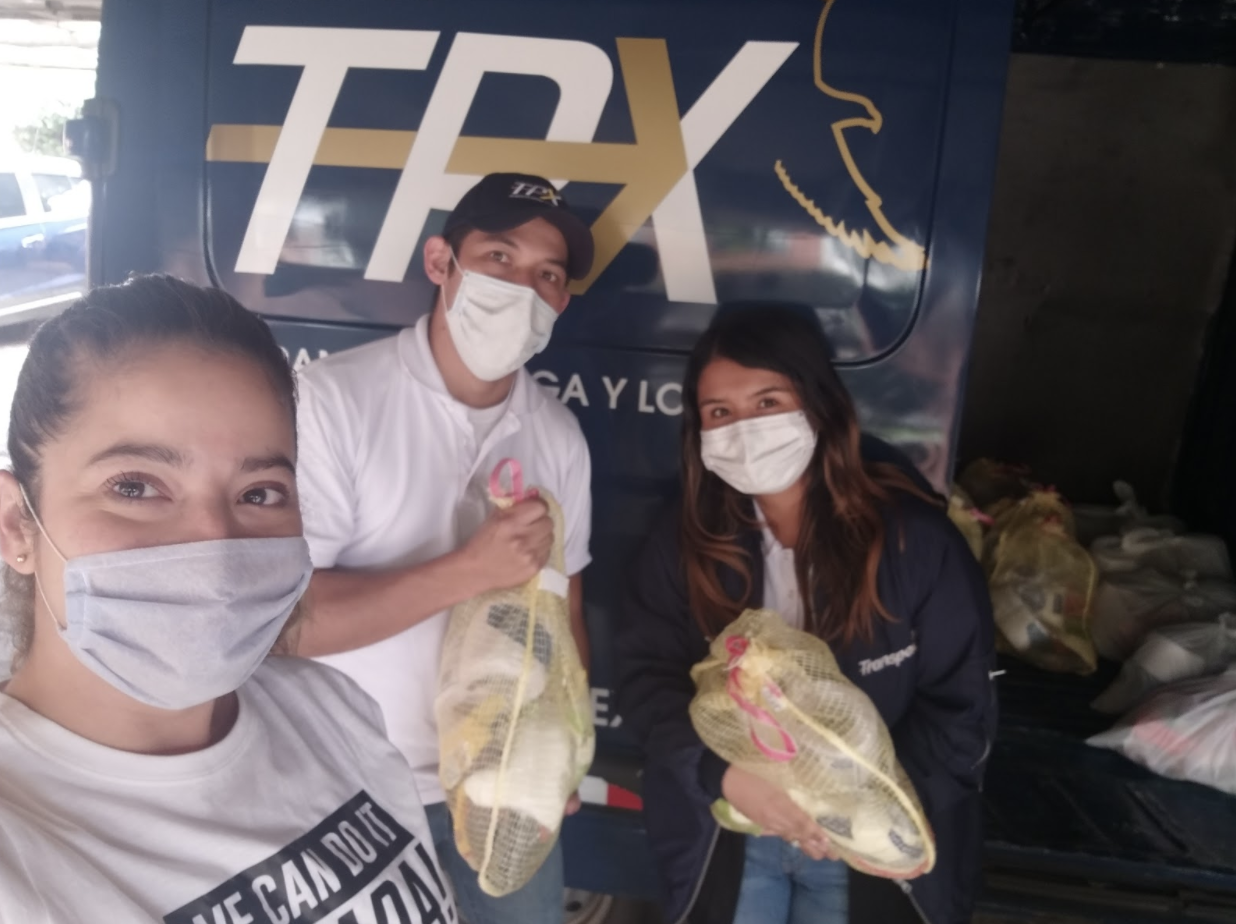
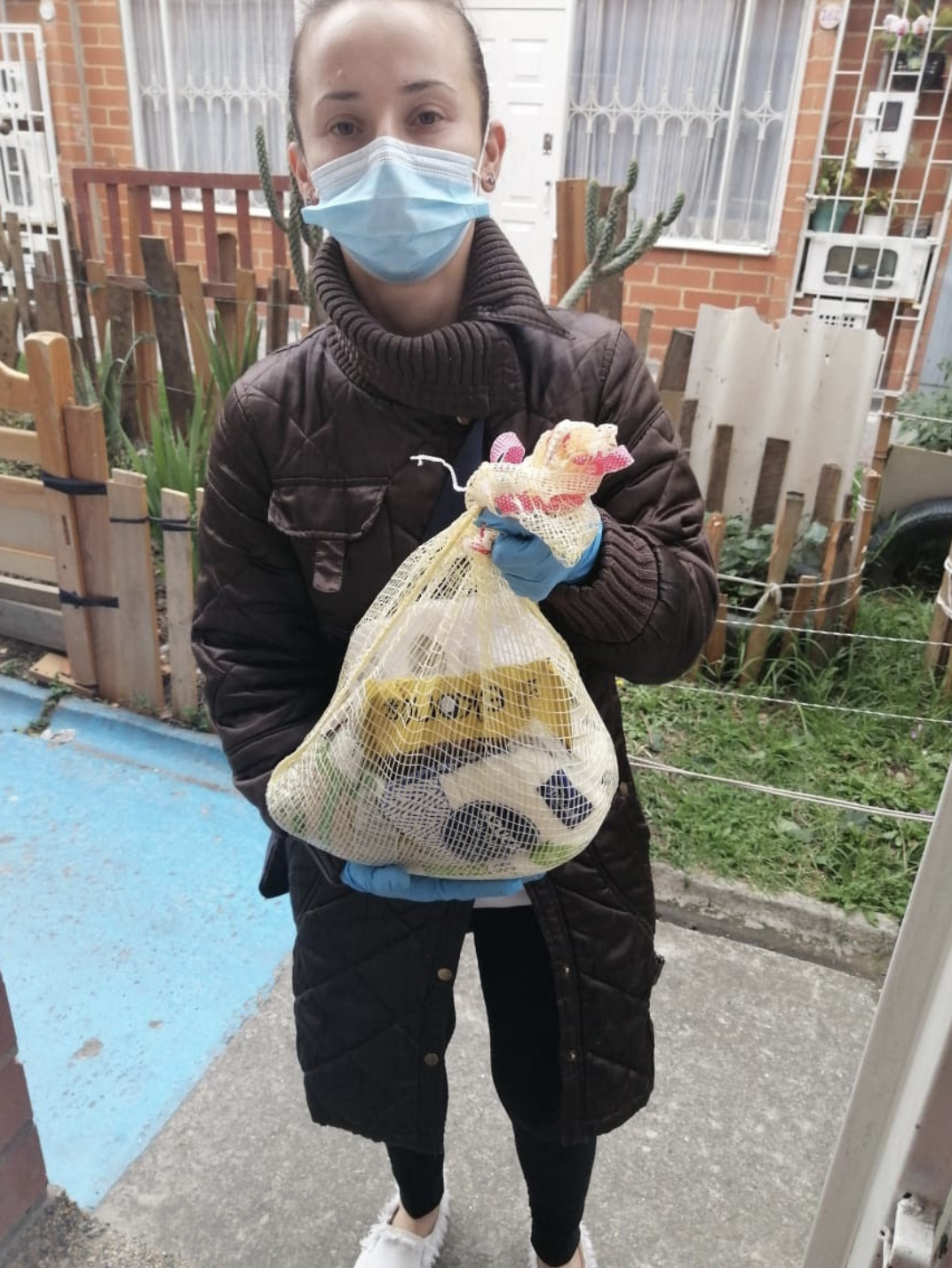
María del Pilar, from Colombia
Through Maria’s social business, Life Academy, she is contributing to reducing the negative impacts of the crisis through a mental health initiative for young people, as it is one of the fundamental issues we need to take care during quarantine, especially because it is the population with the highest risk of suicidal thoughts.
Life Academy believes in engagement and passion for what they do, crisis are seeing as improvement points and not as thing that will stop us to keep helping these kids.
Life Academy’s response against COVID 19 crisis for its operational matters has been very impactful. Maria and her team have implemented a digital platform with the help of IT advisors where the students that are part of this project join for virtual leadership sessions with me and my team and perform similar activities as the business as usual meetings. This work methodology also includes uploading reports and support material that can help the participant to be engaged to the activities. This situation has made Life Academy realize that online educational channels are very efficient to reach students and maintain them engaged with the program.
However, unequal access to computers and/or internet has been a challenge. 30% of student’s in the program do not have access to computers and/or the internet. For them, the Life Academy team has created pre-recorded workshops that are accessible at any time they are able to see them, and for the ones that do not even count with internet or computers at any point of their day, they have printed guides that are collectable in their schools and with exercises that need to be resolved and delivered back to their teachers.
In addition, they started a movement to raise awareness about the high suicide rates in their city. They made a call for volunteers to create “SalvemosVidas”, a campaign that began on Sunday, May 31st, to further raise awareness during the month of Mental Health. The campaign continues to expand to this day.
“SalvemosVidas” started as a social media campaign in which we aimed to share some mechanisms of mental health care which can be easily employed by all people.
Artists from the city and the country have joined the campaign, amplifying our voices. Even the presidential youth ministry joined by sharing the mechanism. Universities, higher education centers as well as the health secretary joined, sharing the information among the youth of their communities.
The response of the campaign has been such that, in less than a week, more than 70 young people signed up to volunteer for the campaign. At that very moment, the team leading it began to understand that “SalvemosVidas” was transforming into a movement. Due to the urgency that young people feel, the campaign empowers them to do something about the situation that has claimed so many lives in Manizales.
As Maria reflects upon her social business, she says: “we are many young people who are ready to act, we have the energy, the desire, the knowledge and the ideas to build a response together. We have already started to develop projects that we are confident will contribute to improving the mental health of young people in the city. If we can understand that young people have unlimited power to be the transforming force of society, then we understand that enhancing their abilities and their sense of life is essential. To have young leaders, we first need to have young people alive.”
You can check about it at Instagram: @academiadevida.co
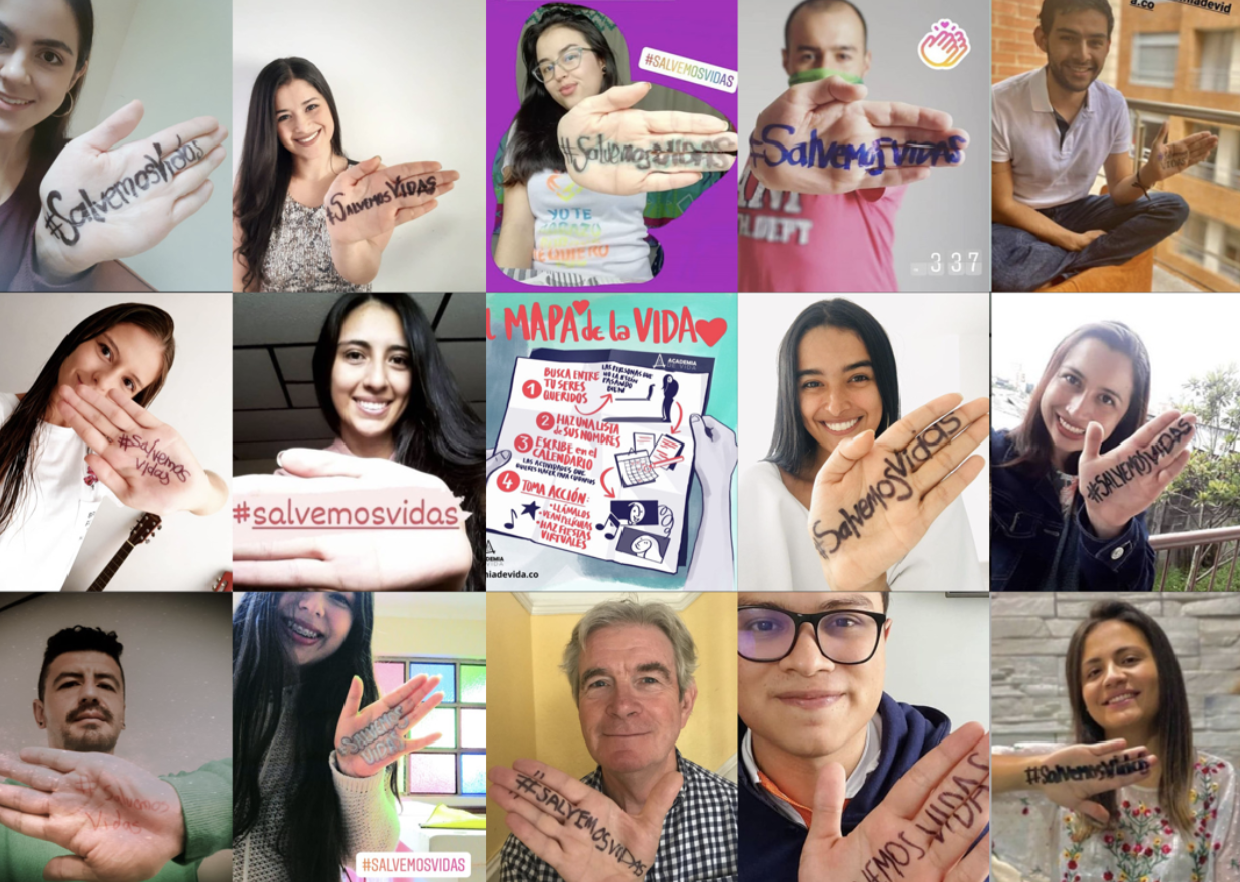
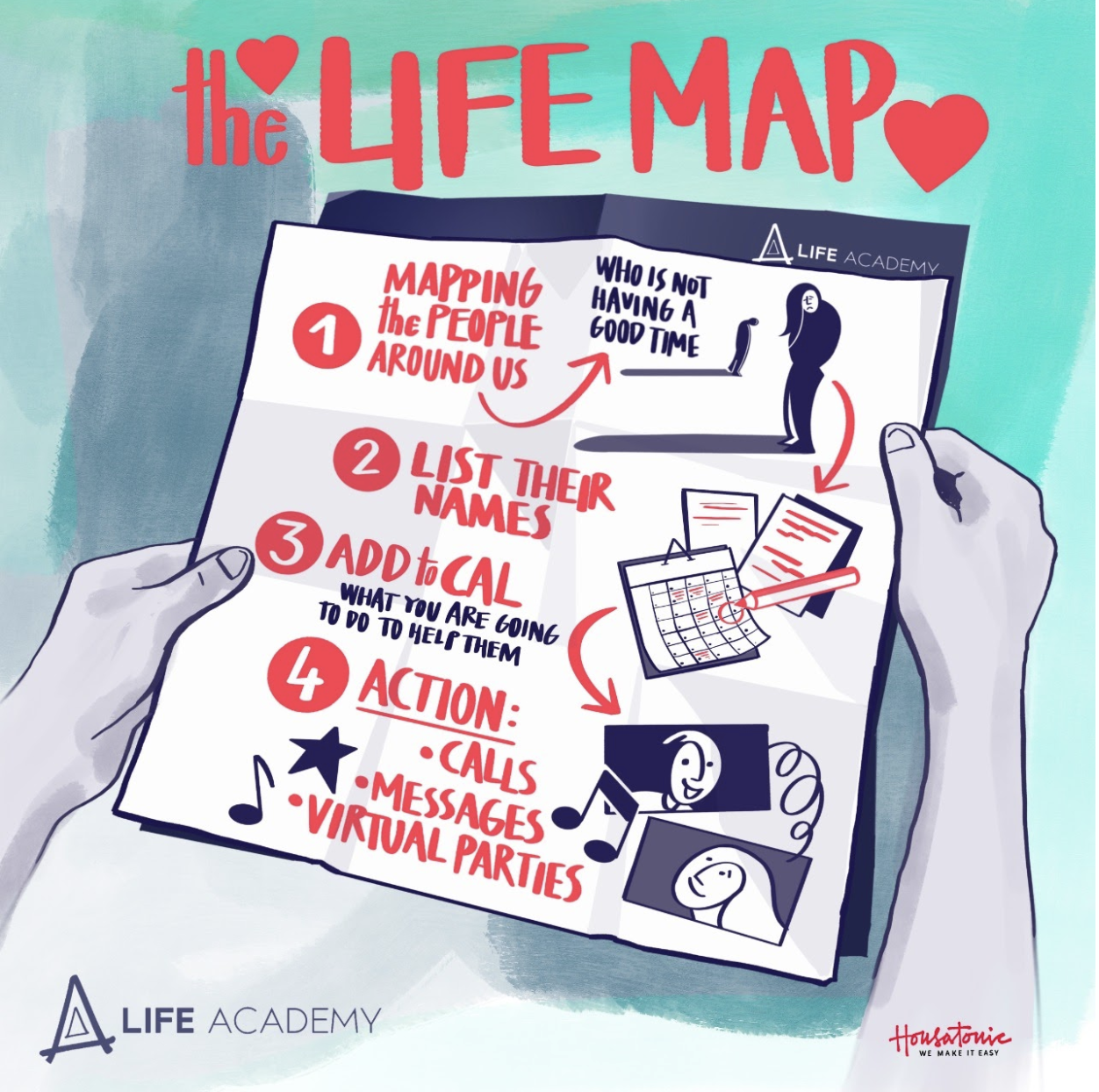
Samwel Tobiko, from Kenya
Samwel is the founder of Smart Shamba, a social business that has adopted a digital platform to create access to videos and SMS with advice on agricultural best practices. Farmers are also able to order farm inputs online and have them delivered to their farms.
To advance in their efforts to fight the pandemic, Samwel and his team are testing the Digital Learning for Farmers feature, through a digital extension toolkit installed at their farm shop. Farmers get to watch short videos from a fixed tablet when they come in to buy or inquire about farm inputs and solar products. The kit also has a WiFi router which allows anyone with a smartphone within a 10 meters radius to access videos and learning materials.
Also, the team has had a new idea. They are working to provide an affordable WiFi network in their local town where they have operations, to enable farmers to access agricultural videos and agronomic activity calendar for crop farming. This network will have a coverage of about 30 meters. Information on protecting yourself from Covid-19 will be embedded in the sign-in page to ensure people stay safe. They are planning to implement his idea in 2 months. Stay posted!
Sameera Chukkapalli, from India/Spain
Through NeedLab, Y&Y Fellow Sameera Chukkapalli has created a Face-mask Disinfection Device to ensure that face-masks can be reused in a healthy way during the crisis.
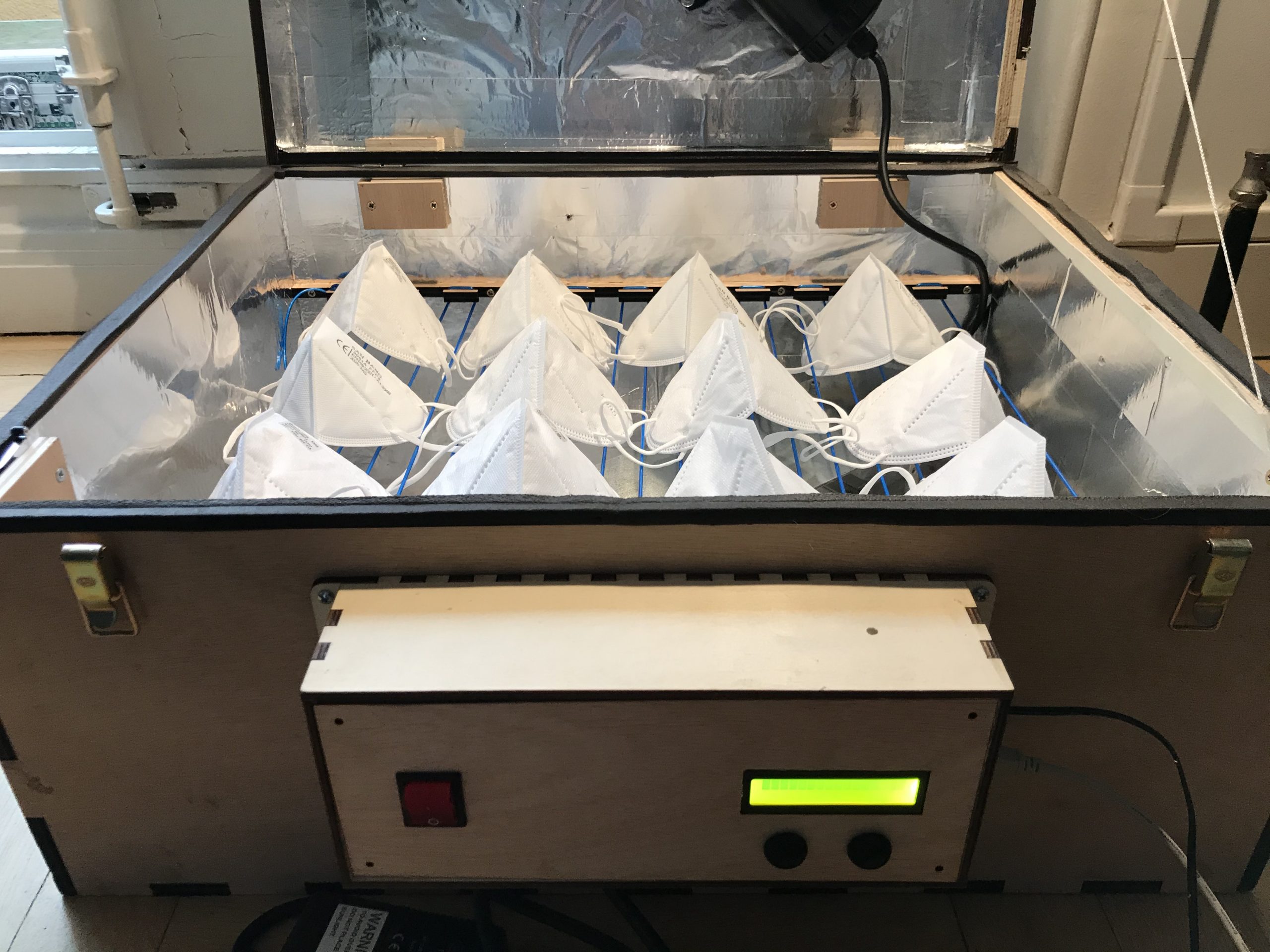
Recently, Sameera and her team have also had many accomplishments. They were selected for the Bridge for Billions Leap Program and Samerra was interviewed by the organization’s podcast, where she shared about her work on Needlab. In addition, she joined the Bosch Alumni Network, attended a World Economic Forum internal call to present Needlab and collaborated with several participants from the COVID-19 Virtual Summit.
Sameera and the Needlab team have also formed new partnerships and received new awards! UN Habitat became one of its partners. The team received a Hackster Impact Project Award from UNDP and the first prize in the competition hosted by Mohammed V University (Rabat, Morocco), which will work with Needlab to perfect their device and reach communities in Morocco, where they will have a lasting impact.
As a team, Needlab has much more coming ahead! Other then Sameera, the team is comprised of Jean Noel Lefebvre, Daniel Moreno, Pierre Gilles Levallois, Dr Alejandra Duque, Dr Felipe Gutiérrez Arango, Jason Knight and Maria Isabel Velez Isaza.
Lina Zdruli, from the USA
Y&Y Fellow Lina Zdruli leads Dafero, a social business that crafts natural indulgences, such as date spread and date-based sweets, to help families get off added sugars, and supports vulnerable women such as refugees and trafficking victims through employment and life skills training.
To increase their impact during the current pandemic, Lina and her team have created Kura Foundation, a Digital-based program for refugee women, which is focused on teaching life and technical skills. Currently, it includes courses on COVID-19, aimed at providing concrete prevention information and combating fake news.
In addition, Lina has also led a workshop about COVID-19 in person for frontline workers in a rural area of Mexico.
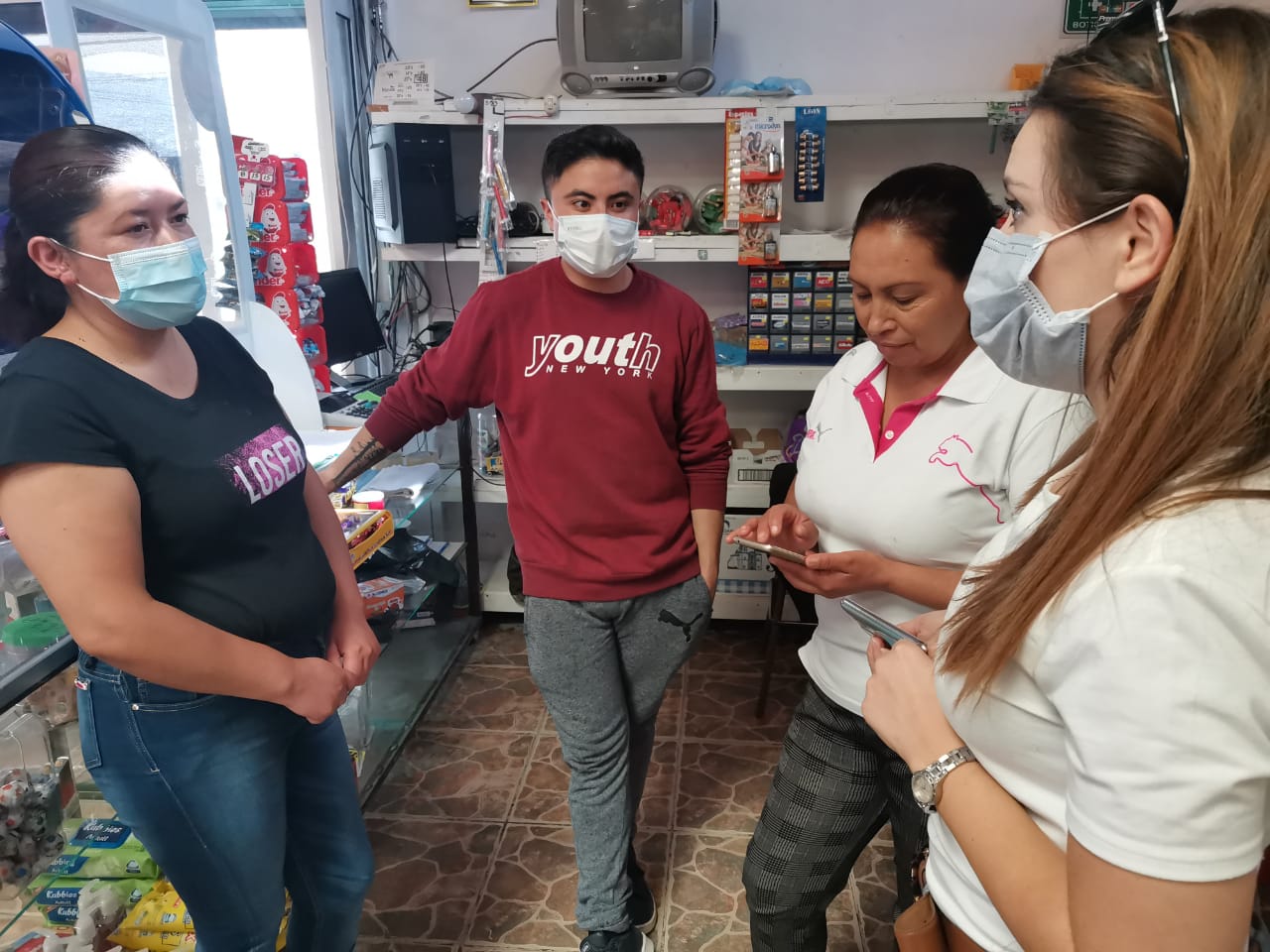
Baitulhusna Ahmad Zambi, from Malaysia
Y&Y Fellow Baitulhusna is the founder of Nazkids, a Social Enterprise that empowers women by enhancing their skills to produce clothes for babies. As a result of the current pandemic, Nazkids’ orders reduced significantly. At the same time, Bai and her team had difficulties to buy masks for their beneficiaries.
So, they decided to make them and use them a source of revenue to support their business during this time. Bai told us that “Nazkids are able to stay float and pay well to their beneficiaries even during the 3 months lockdown”.
To achieve that, she and her team have also partnered with local agencies through fundraising and were able to provide about 2,000 masks to vulnerable communities. To learn more about this initiative, click here.
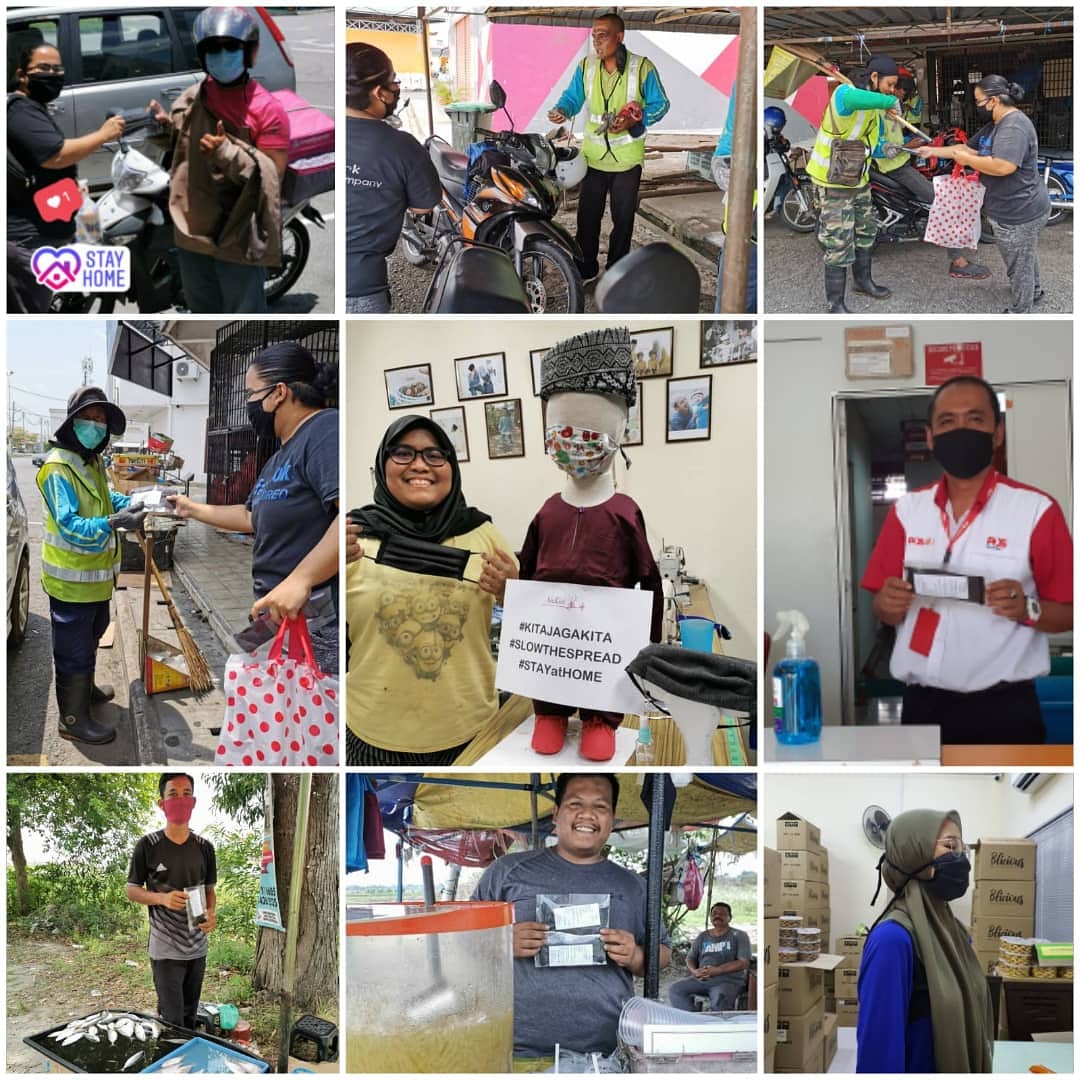
If you are a young social entrepreneur struggling to pivot your business to tackle the challenges aggravated by the COVID-19 pandemic, download our new toolkit. We hope these resources will help you and your organizations thrive during these challenging times.
